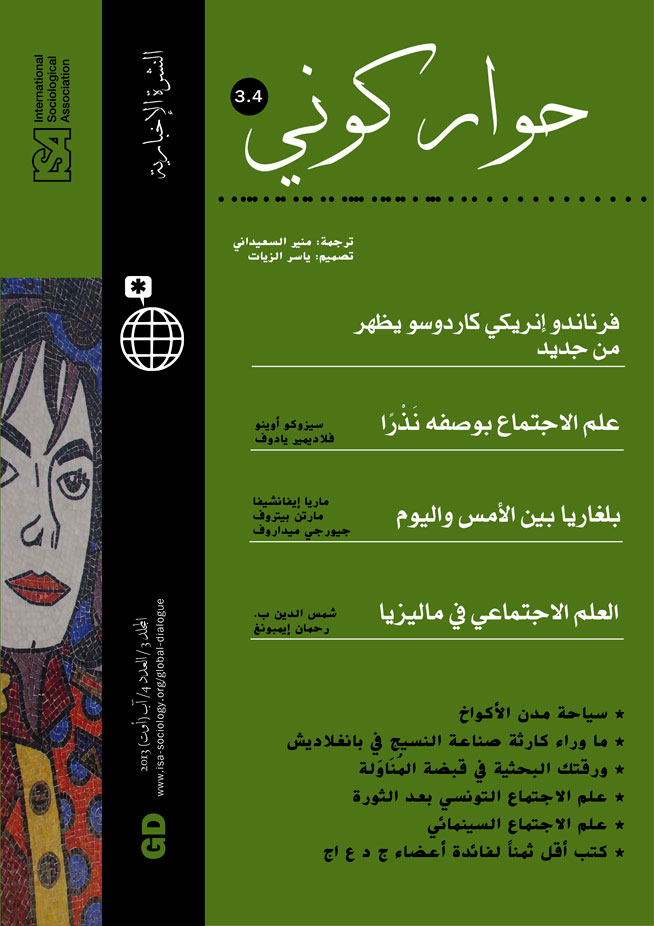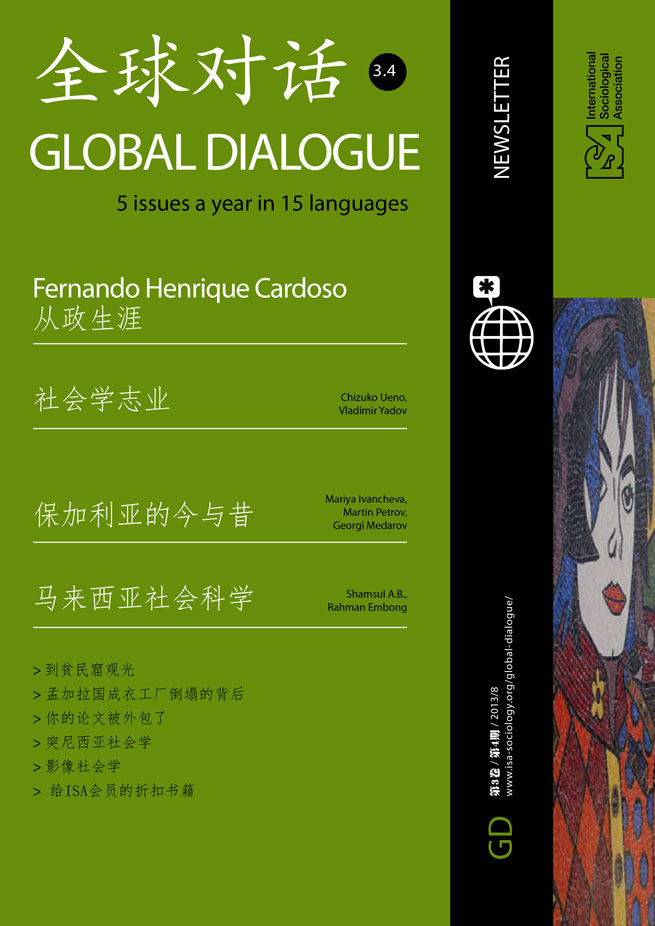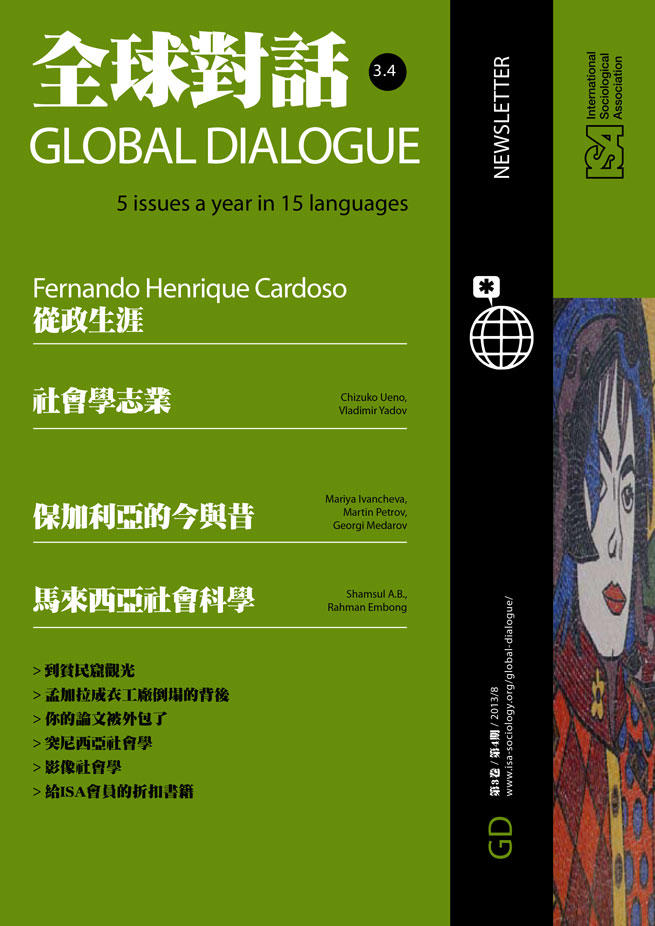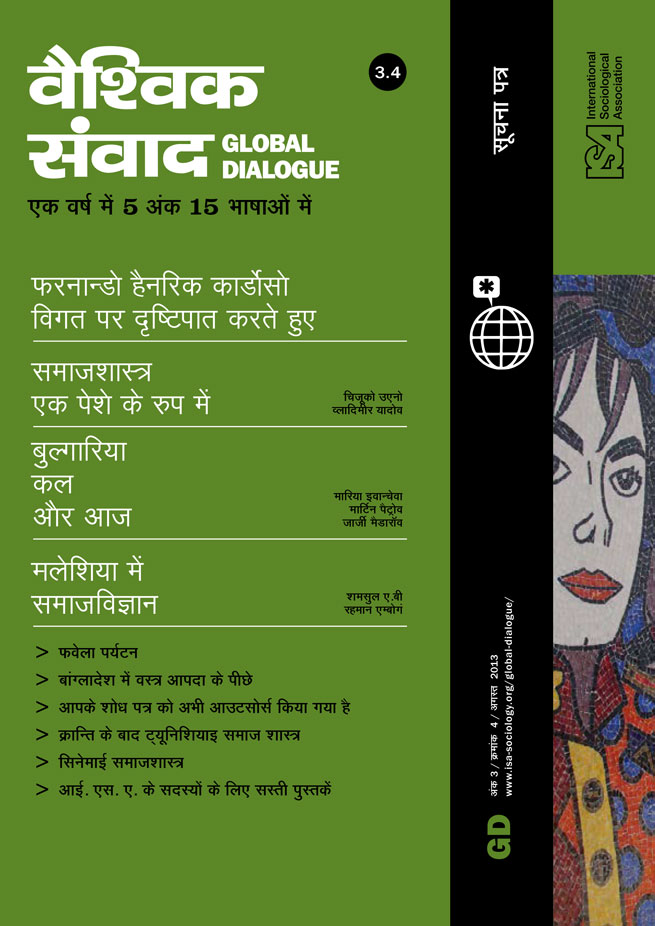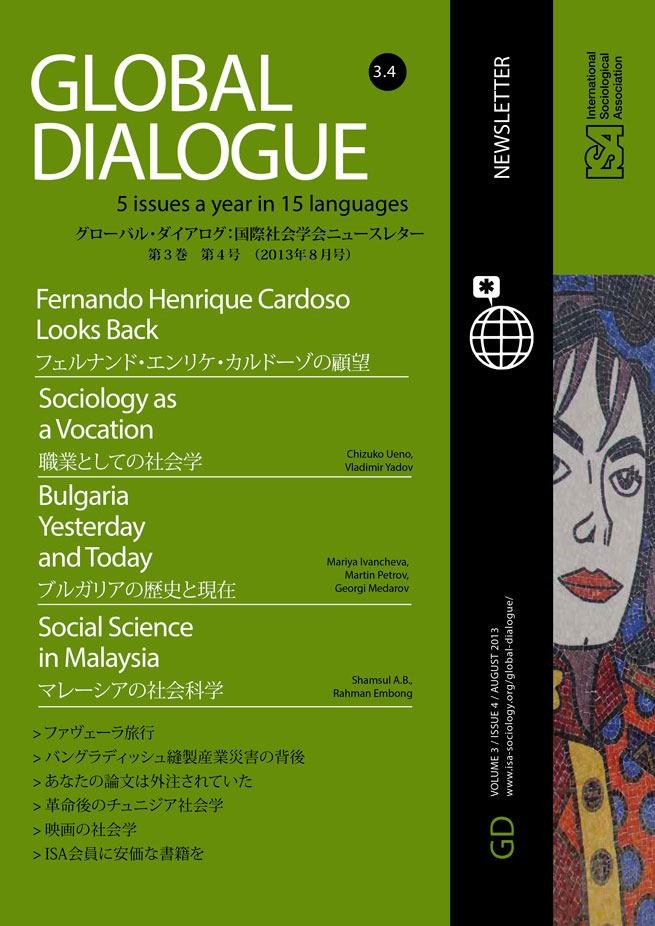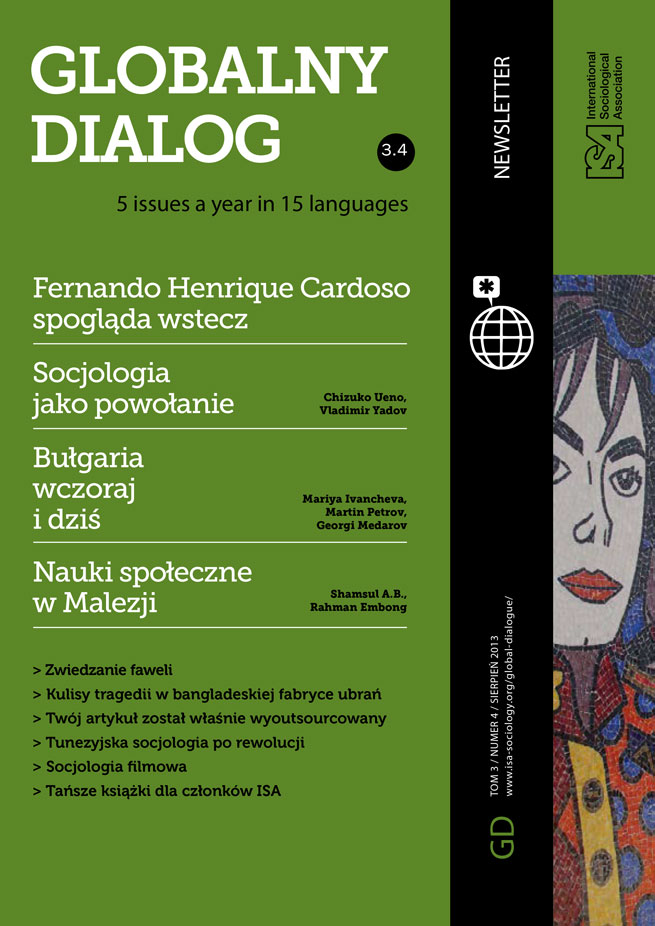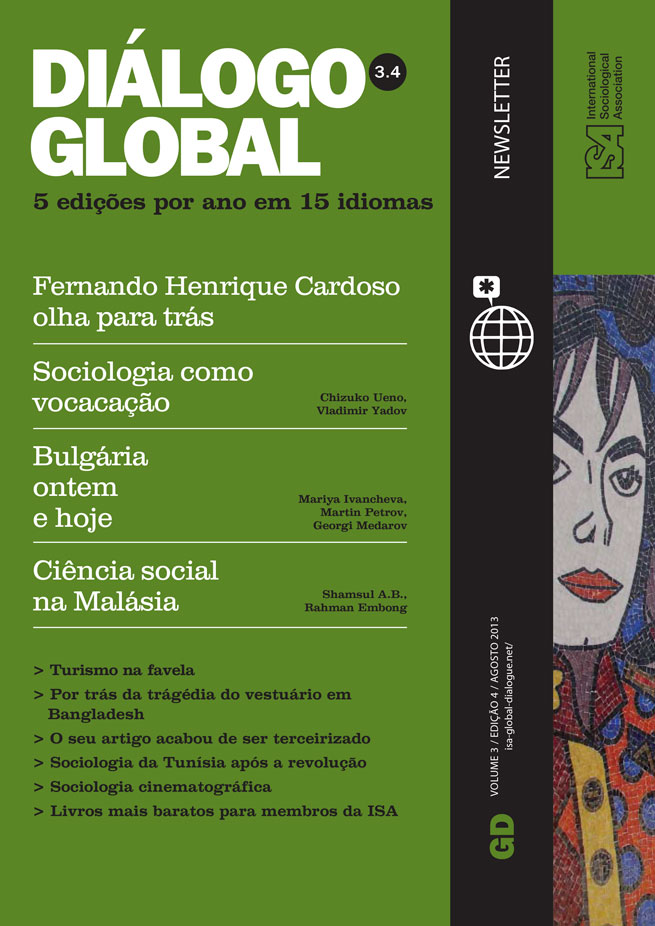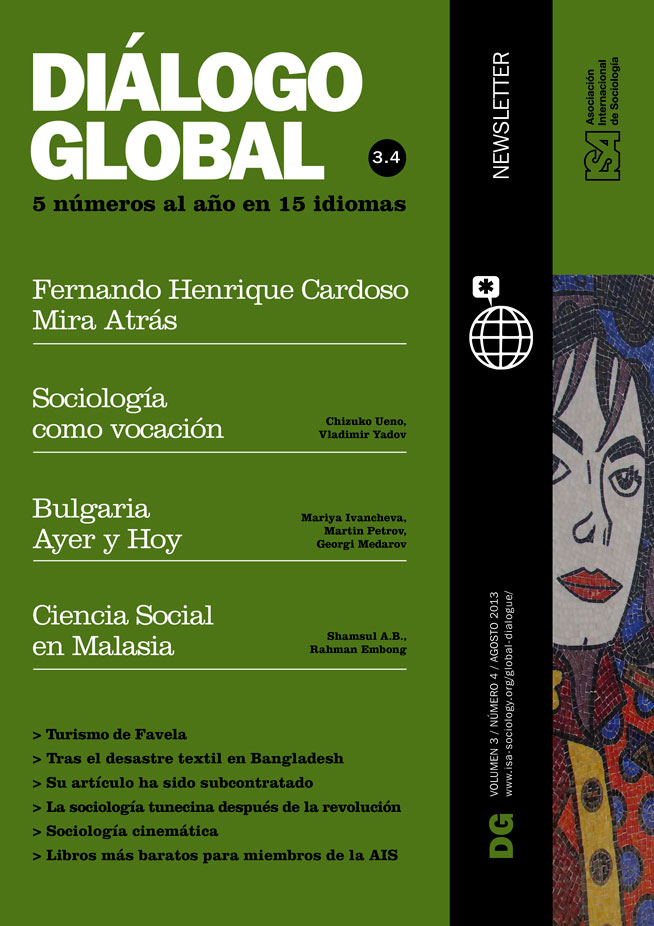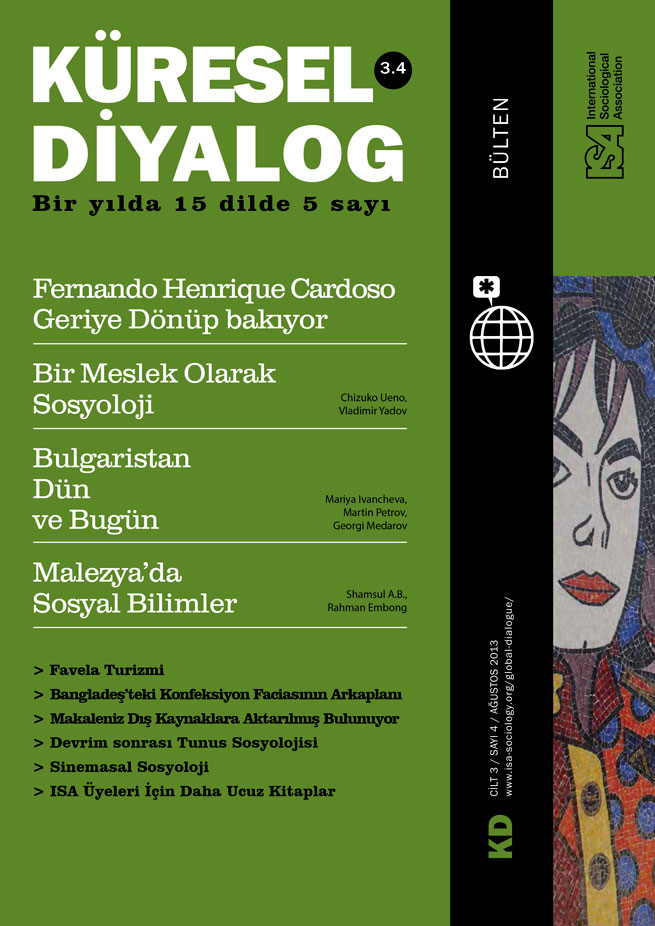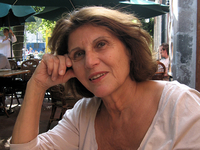Tunisian Sociology after the Revolution
August 17, 2013
Three contradictory aspects of the current Tunisian situation are shaping the work of sociologists: tremendous political change, an expanded freedom of expression, and the advent of a new wave of social movements. Given the rapidity of social change, Tunisian sociologists have largely responded in individualistic ways.
Post-Revolutionary Context
The Ben Ali dictatorship ended on January 14, 2011. Since then the country has experienced a “war of all against all” with many of the conflicts revolving around the new “public enemy” – the Salafists – who are regarded as the most dangerous threat to the so-called “Tunisian way of life.” Even charity, welfare, philanthropic, cultural associations and NGOs have become, almost despite themselves, embroiled in conflicts in the deeply divided political arena. The fact that there are about 150 political parties and some 15,000 associations does not make for an easy comprehension of the situation.
Social statistics and other kinds of data are now more available but the extremely disorganized administration and the very slow reform of its mode of operation do not necessarily help to create a more accurate picture of Tunisian society. With freedom of expression as manifested in the proliferation of magazines, newspapers, social media, public and private TV channels (altogether more than ten) and radio channels (about fifteen, largely FM), the streets and squares have become arenas of political struggle and laboratories of public opinion making.
Past actors are part of the present struggle, old interests become today’s challenges and there is a dark political opacity which makes the work of sociologists risky. Social movements, especially after the elections of October 23, 2011, are less controllable. Local general strikes, sit-ins and clashes with security police have spread throughout the country, especially in the small towns of the central-west region of Tunisia, the cradle of the revolution. Local leaders become more accountable to popular protest, which itself works through the expansion of social networks. Social prophecy is beyond the reach of public experts and scientists. Social movements voice new needs and strive for new goals, whether they be environmental, ethnic, regional, or related to gender. Analysis of social movements has to be renewed each day.
Sociology in Times of Turbulence
The 60 academic sociologists in the three sociology departments in Tunisian universities fall into three categories. There are those who publish books on the turmoil – they are not numerous, perhaps four or five. About the same number publish articles. The majority don’t publish claiming that “the ongoing social movement cannot be analyzed due to its chaotic and rapidly changing character.” Before the revolution there weren’t more than two or three sociologists dealing with social movements and related issues. For the first year of the post-revolutionary period, the sociologists belonging to the second category were quite comfortable, writing articles of a theoretically unrisky character or simply about themselves. Weekly and even daily newspapers were their usual outlet and their articles dwelt on what was generally happening in the country. More focused articles sought to identify the actors in the uprising. Some of these sociologists wrote their impressions on blogs or Facebook.
At the beginning there was little media interest in sociological voices and views but this has changed with every passing month. With regard to spreading their knowledge, Tunisian sociologists are experiencing a new relationship with media outlets in which the demand for their services is part of a political strategy to deal with social issues in new ways. Some academic sociologists have become members of editorial teams of theoretical or intellectual magazines, while others are involved in research centers without any academic structure. Neither group produces scientific knowledge. What sort of job are they doing in these places? One cannot be very optimistic, given the conditions under which they work. The next question is whether these new media outlets give new opportunities for a public sociology or whether they are simply a political gimmick that descends into polemics.
One Tunisian sociologist who publishes books said, “All that I have published has been due to my personal efforts. No one gives me any support.” Another one retorts: “We, the not- highly-ranked academic sociologists, have no opportunities. Most of the activities, even those organized inside the university, are only for those who have already been ‘recognized’.” Thus, young sociologists face a particularly difficult situation: “When one has to cope with the situation all by oneself, young sociologists will be absent.” Nevertheless, we do have a new publication entitled Penser la société tunisienne aujourd’hui : La jeune recherche en sciences humaines et sociales [Thinking Tunisian society today: The young researcher in the humanities and social sciences] which brought together about twenty articles written in French, produced after a writing workshop held in July, 2010 in collaboration with the Institut de Recherche sur le Maghreb Contemporain (IRMC). On the other hand, since the end of the dictatorship, the Tunisian Sociological Association, which is more than 25 years old, was not able to organize more than a few meetings for sociology students.
One of the responses adopted by Tunisian sociologists has been to try to publish abroad and secure greater visibility that way. But the first international sociological symposium, organized under the title “Sociology of Arab Revolutions,” held in March 2011 in Sidi Bouzid, the birthplace of Bouazizi – the street vendor who set himself on fire and became the catalyst of the Tunisian Revolution –, attracted no more than seven Tunisian sociologists, one of whom had settled in Beirut, an Algerian, and a Lebanese who came from England.
Other sociologists try to build relations with social movements: “I am, myself, a social movement activist. I try to advance my position through expounding a sociological view,” said a colleague. Another testifies, “It is not easy. Social activism in Tunisia is new and both opposition politicians and government supporters create many obstacles. Training, grounding concepts, enrolling actors must be done simultaneously and in a democratic way. There must be respect for the internal dynamics of the teams. This has become harder when you are alone without any weapon other than your will.” Since the beginning of the 2011-2012 academic year, young researchers have shown a growing interest in social movements, especially for their Master’s Degree but also, in fewer numbers, for their PhD. Many of these studies are based on field work, surveys, and other types of scientific investigation and they focus on the role of youth, on social media, and on the memory of participants.
New Opportunities for Research
The conditions of research are much more open than before. The old fear of political and administrative reprisals, which had restricted freedom of expression, has been lifted and interviewees feel free to declare their views and experiences. Researchers are able to use photos, videotaped testimonies and, sometimes, diaries. Nevertheless, new theoretical frameworks are still in an embryonic stage of development.
One can say that Tunisian sociologists examining their changing society still face considerable obstacles in developing a new vision for their research. Still, the rapid and deep social change in the post-dictatorship period is leading toward a more scientific approach to the study of society. The question remains, however: will sociologists be able to take advantage of the expanding opportunities to fulfill their new obligations to the development of society?
Mounir Saidani, University of Tunis El Manar, Tunisia

